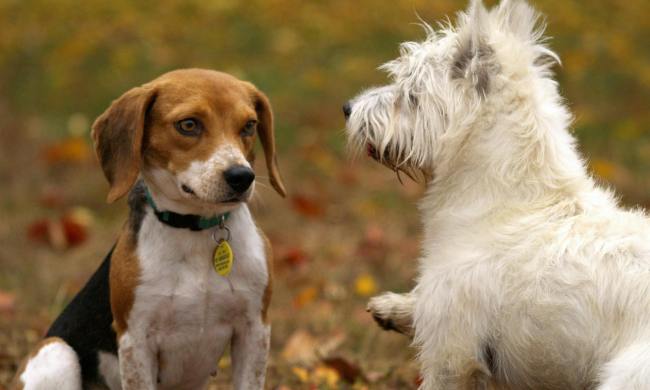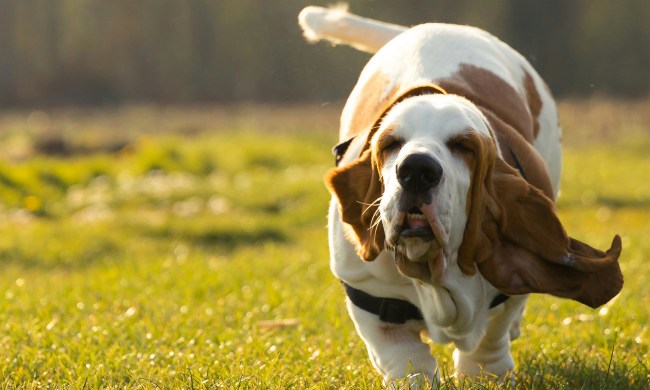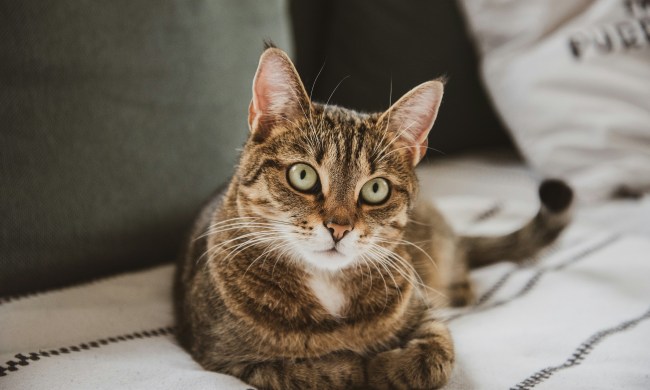Having fur babies brings joy and meaning to your life, but their presence requires you to take precautions when making new purchases. No matter how much you want a new space heater for those frigid winter nights, there are risks involved. What if your space heater gets too hot? What if your cat touches the heating element? What if your rambunctious puppy manages to knock it over? Are space heaters safe around pets in the first place? Those are all valid questions. We hear you, and we’re here to help. Let’s review the top five pet-friendly space heater features to look for before you make your purchase.
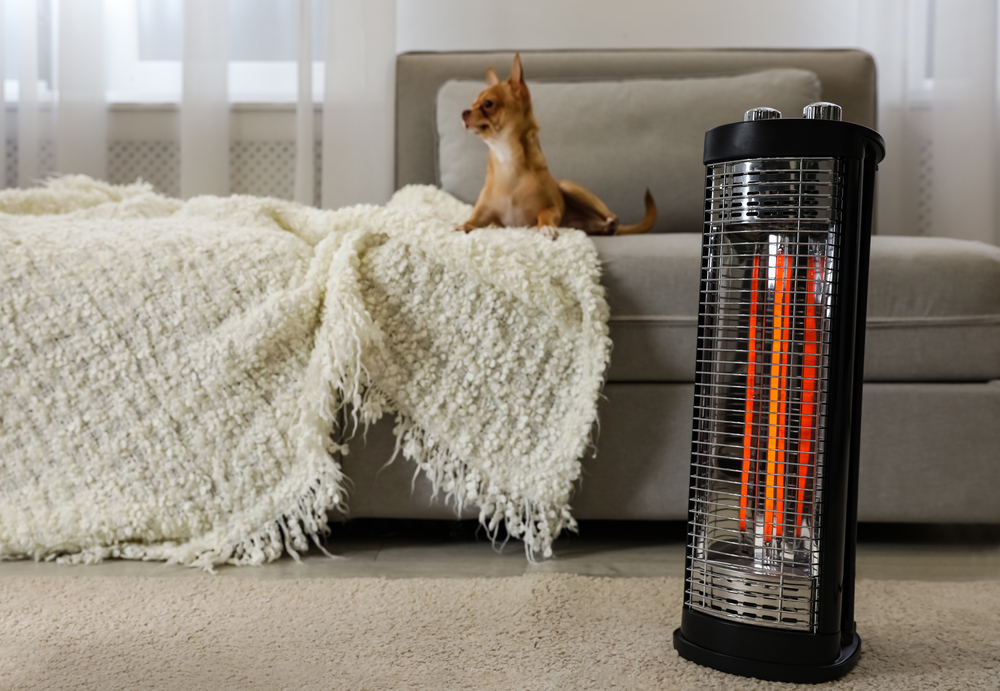
Are space heaters safe around pets?
In an ideal world, extreme temperatures would cease to exist, and we would never feel too hot or too cold. In reality, sometimes you need an additional fan to stay cool during the summer, and a space heater becomes part of daily life during the winter. But winter essential or not, you still need to pick a space heater carefully. Space heaters come in all kinds, but we would avoid using anything fueled by kerosene, natural gas, or propane in a household with small children or pets.
Although these heaters are budget-friendly and generally safe to use, there’s still a risk of carbon monoxide poisoning if your space heater doesn’t have proper ventilation. You’ll also want to avoid space heaters with exposed heating elements. Curious fur babies may wedge their paws or noses through any gaps to feel the source of warmth, leading to painful burns. When you have pets, we recommend that you stick with an electric heater, which is always equipped with overheating protection, or a ceramic heater with fully enclosed heating elements. Here’s what you should look for in terms of safety features.
Pet-friendly features in space heaters
The best space heater for households with pets should have the following features:
1. Safety certifications
If a space heater hasn’t been UL and ETL certified, it isn’t safe for your home. With rigorous safety regulations in place, space heater manufacturers are required to comply with certain standards to ensure product safety. Not only should the heating component pass inspection from safety organizations, but also internal wiring, cords, plugs, and the external housing should all pass muster. Using a space heater with faulty wiring or loose cables is a potential fire hazard, so resist the urge to pick up a no-name space heater just because it’s inexpensive. Your safety — and the safety of your pets — is priceless.
2. Tip-over protection
While no one enjoys lugging heavy items from room to room, it’s best to opt for a heavy model with a weighted base to prevent your fur baby from knocking over your space heater. You can also find lighter models with built-in tip-over protection. If your space heater tips over, it could scorch your hardwood floors. Even worse, it could potentially set your floor on fire if the unit lands heating element side down. That being said, space heaters belong on the floor. Don’t place the heater on your nightstand or dresser, as a determined cat can easily knock one to the floor, whether the unit has tip-over protection or not.
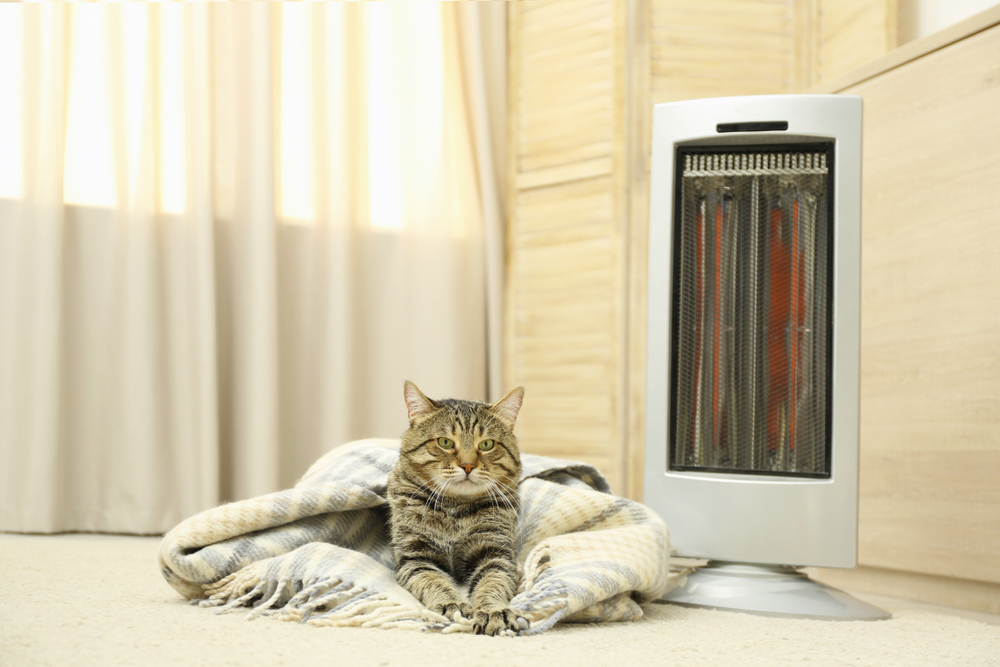
3. No exposed heating elements
It’s a well-known fact that pets love to curl up where it’s warm, and curious canines and kittens may want to investigate the new heat source. Opt for models with closed grilles made from sturdy material instead of space heaters with wide grilles. If you can slip your finger into the grille, it’s too wide and may prove hazardous to your fur baby.
4. Timer setting
Using a space heater 24/7 is potentially dangerous. If you’re prone to forgetfulness, look for a space heater with a built-in timer setting. Run your space heater only when you’re with your pet. Even if a heater has top-notch safety features, your fur babies should never be left unattended with a running space heater.
5. Adjustable thermostat
Fixed heat settings can turn a warm, cozy room into a miserable sauna. If your pet enjoys sleeping near the space heater, a fixed setting may cause him to overheat. Look for a space heater with an adjustable thermostat and work the setting until it provides additional warmth to your space without continuously pumping out stiflingly hot air. Remember, a space heater is meant to provide supplementary warmth to your room. It’s not meant to serve as your only heat source.
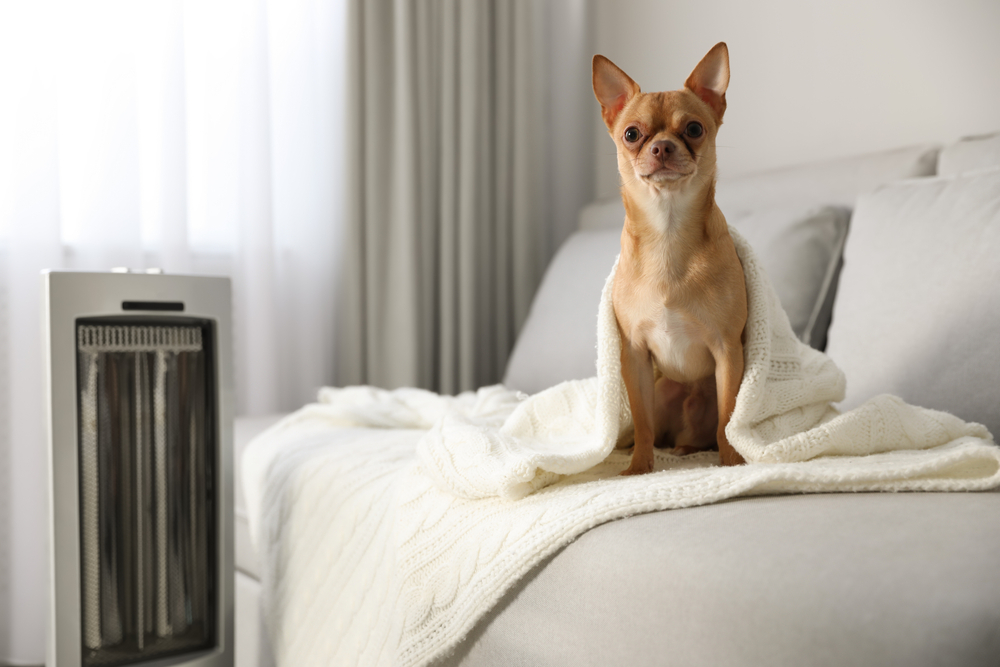
Staying warm during the cooler months is essential, but so is the safety of your pet. Look for space heaters with overheating protection, a heavy base that won’t tip over, and an exterior that remains cool to the touch. Opt for space heaters that meet our safety criteria, and you’ll be able to stay warm while keeping your fur baby safe.

